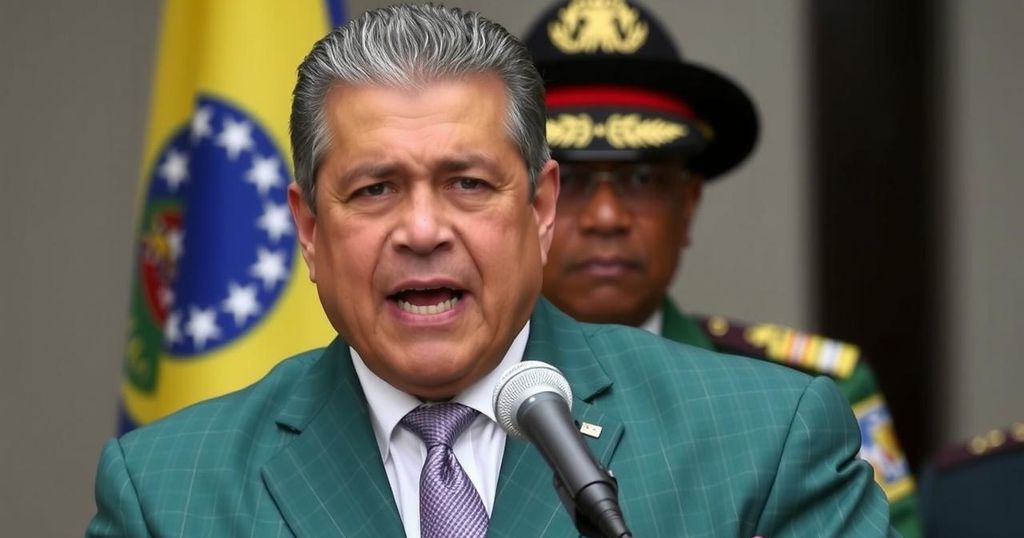Maduro Cautions CARICOM on U.S. Military Collaboration with Guyana

Venezuelan President Nicolás Maduro has alerted CARICOM about the dangers of U.S. Southern Command’s collaboration with Guyana after President Irfaan Ali’s meeting with U.S. military leaders. Tensions have escalated due to ongoing oil explorations led by ExxonMobil in the contested Essequibo region, which Venezuela claims. Despite diplomatic efforts, Maduro warns of the potential consequences of growing military alliances.
In a recent address, Venezuelan President Nicolás Maduro cautioned the Caribbean Community (CARICOM) against the perceived dangers of U.S. Southern Command operations in Guyana, particularly following a meeting between Guyanese President Irfaan Ali and U.S. military leadership. Maduro asserted, “I call on the Caribbean, on CARICOM, to be alert, because the Southern Command is there provoking our region and Venezuela is here, ready and well positioned to defend its historical rights.” The tensions between Venezuela and Guyana have escalated, primarily due to ongoing oil explorations conducted by ExxonMobil in the disputed Essequibo region, which Venezuelans claim as their historical territory. Despite treaties and declarations aimed at peaceful negotiations, Maduro suspects that Guyana is deepening its military alliances with the U.S., which poses a threat to Venezuelan sovereignty.
Maduro expressed Venezuela’s commitment to defending its claims during a ceremony commemorating a historical battle, labeling any aggression against Venezuela as an affront to its independence and history. He has linked President Ali’s engagement with Southern Command to a perceived escalation of hostilities, warning that it might signal preparations for military aggression, thereby dismissing the principles of their agreements designed to avert conflict.
In a related turn, after recently bolstering military cooperation with the U.S., including the reception of a U.K. warship, President Ali’s administration continues to steer a course toward closer defense ties with foreign powers while ongoing legal disputes regarding the Essequibo territory remain unresolved. Meanwhile, Venezuela has lodged its own claims with international courts, maintaining its historic assertion over the 160,000 square kilometer area, which is of significant economic interest due to its abundant oil resources. Throughout these developments, tensions are poised to rise as Venezuela remains vigilant against what it perceives as U.S. interference in the region, potentially destabilizing the delicate balance within the Caribbean community.
The escalating tensions between Venezuela and Guyana primarily revolve around the contested Essequibo region, which has been the subject of territorial disputes since the colonial era. Recent oil exploration activities by ExxonMobil in this region have further exacerbated these tensions, prompting Venezuela to reaffirm its territorial claims through national referendums and international legal processes. The U.S. Southern Command’s increasing military engagement with Guyana has raised alarms in Venezuela, leading to widespread concern over national security and the potential for conflict. Historically, the Essequibo dispute has involved complexities of colonial agreements and modern geopolitical interests, making it a focal point of regional instability.
In conclusion, President Nicolás Maduro’s warnings to CARICOM underscore the complex geopolitical landscape surrounding the Essequibo region and its implications for Venezuelan sovereignty. As Venezuela continues to navigate this dispute amid U.S. military involvement in Guyana, the potential for conflict remains an ever-pressing concern. The situation highlights not only the fragile peace in the Caribbean but also the intricate balance of power and historical legacies that influence current relations among these nations.
Original Source: venezuelanalysis.com







